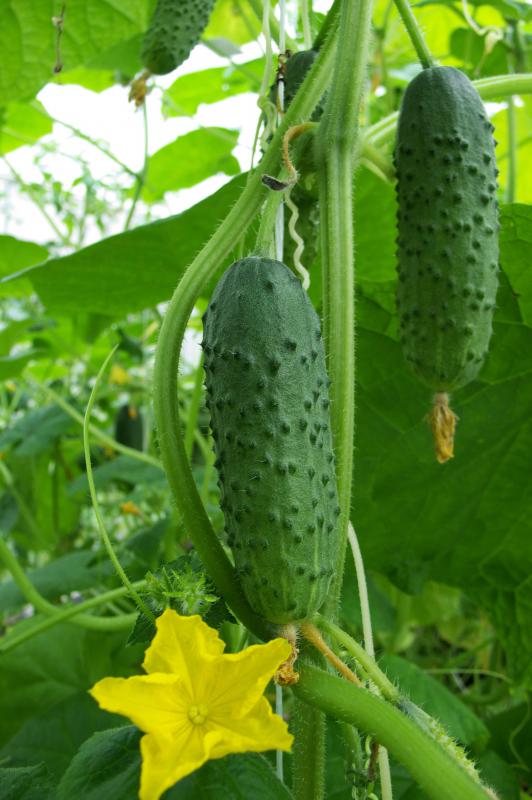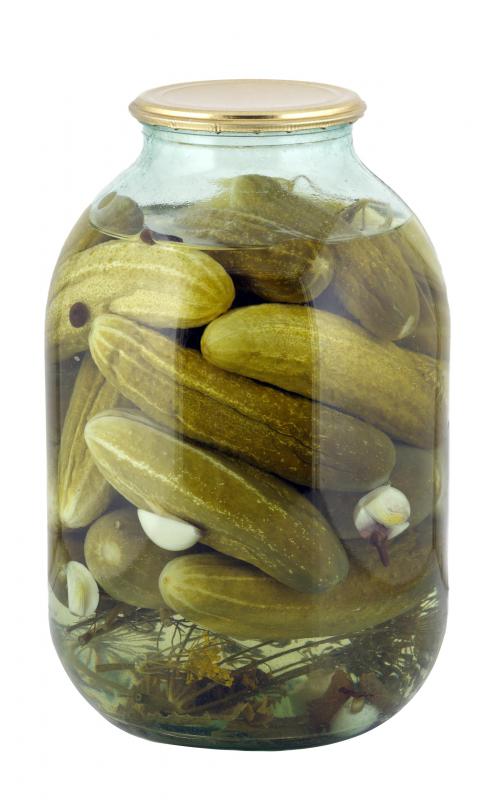At WiseGEEK, we're committed to delivering accurate, trustworthy information. Our expert-authored content is rigorously fact-checked and sourced from credible authorities. Discover how we uphold the highest standards in providing you with reliable knowledge.
How Do I Choose the Best Canning and Pickling Salt?
When food prices rise, the budget-minded often rediscover traditional methods of preserving food, such as pickling and canning. These methods allow home cooks to acquire in-season produce and preserve it for later use. Since preserving food in the home generally requires canning and pickling salt, it is important to know how to choose amongst the products. You can choose the best canning and pickling salt by looking for large crystal size, not paying too much attention to salt names, and knowing if your recipe would benefit from sea salt.
Quality canning in pickling salt has a large crystal size. Traditionally, canning and pickling salt was used to extract juices from meat, thus preserving it for later use. Large crystal size was an advantage because large crystals would cling to me more readily than small crystals would. Even if you’re not preserving meat, stick with large crystal salt. Canning and pickling recipes are formulated to use large-crystal salt, and will come out too salty if you use small crystal salt.

When shopping for canning and pickling salt, don’t worry too much about the name of the salt. There are few or no legal standards governing the labeling of salt. Canning or pickling salt may be labeled as kosher salt, pickling salt, canning salt, or koshering salt. As long as the salt has large crystals, it will work for general pickling and canning.

Not all types of large-crystal salt are exactly alike, however. The best salt for you depends on the recipe you’re using. Sea salt, as a name implies, is harvested from coastlines around the world. Because it comes from evaporated sea water, sea salt contains more minerals than the other types of large-crystal salt. If you’re working with delicate produce, such as cucumbers or fruit, you may find sea salt has more character. For strongly-flavored recipes, you may be better served to use a less-expensive kosher salt, as the finer nuances will be lost in this type of recipe.
AS FEATURED ON:
AS FEATURED ON:













Discussion Comments
If I'm doing dill pickles, I always put a few sprigs of dill in my canning salt a couple of days before, to get more dill flavor into my pickles. It works great. I always put dill into the jars, of course, but making "dill salt" beforehand works really well.
It seems to really amp up the dill flavor of the pickles, and I like my pickles to be very "dilly." I don't want them to taste like I just waved a dill sprig over the jar before I canned the pickles.
If I'm going to go to the trouble of making pickles, I want them to taste like something. I hate bland pickles!
You also have to make sure the salt you get does not have iodide added. This is because the iodide will make the pickle juice cloudy and can turn the vegetables dark. They're still fine to eat, but they won't look fresh and appetizing.
My mom made the mistake of using regular salt with a batch of pickles. Actually, they weren't too salty, but they were a dull, olive drab color and the pickle juice looked really muddy. We ate them, but she didn't give any jars away, like she usually did with her pickles. They just didn't look good.
Post your comments